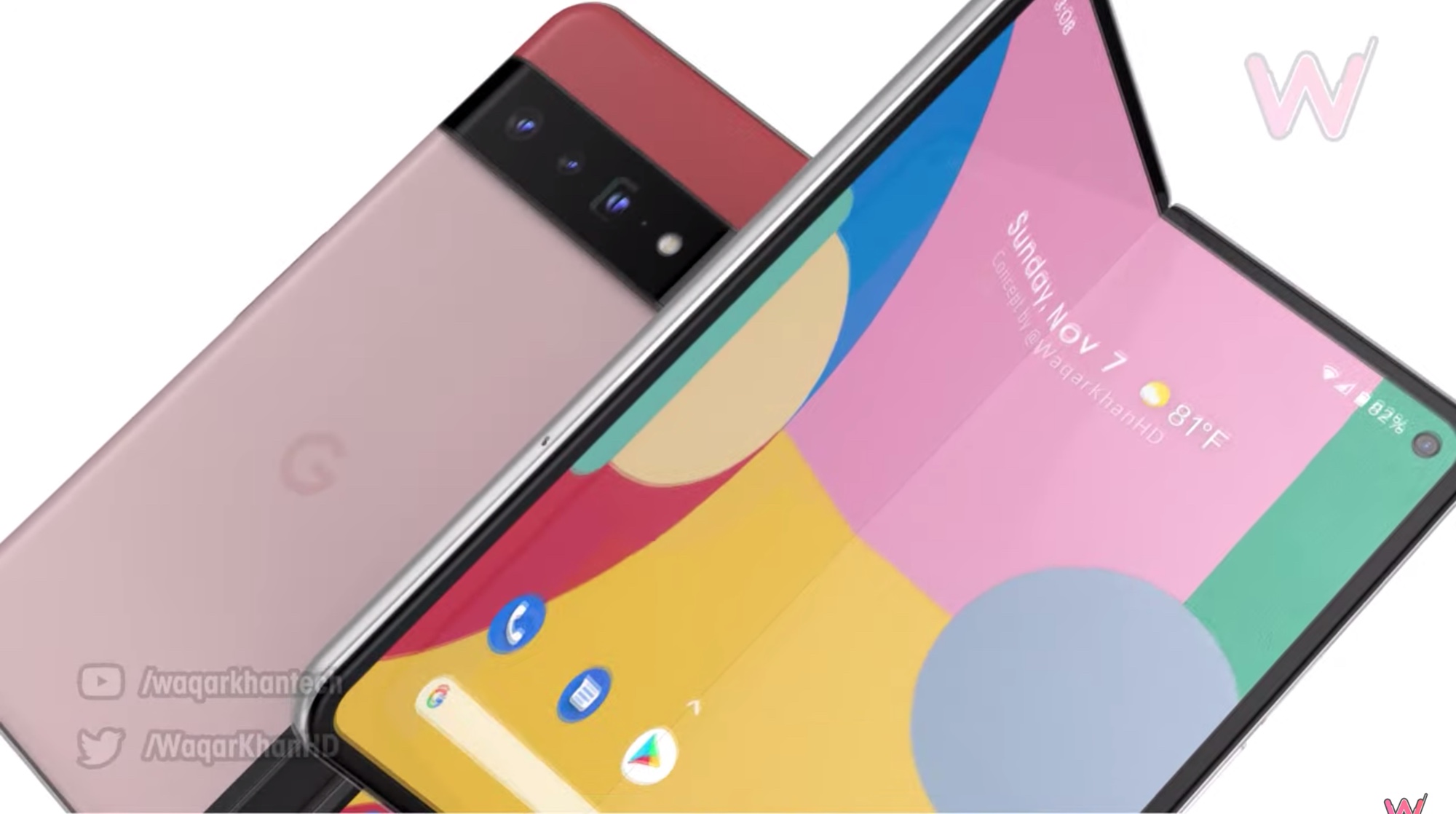Google Pixel Fold could fight Samsung Galaxy Z Fold 4 with cheaper price
And the Google Pixel Fold could be called Pixel Notepad

Update: A new report from the same source has a more specific figure for the Pixel foldable's price: $1,400. And job listing hints that Google could be returning to the tablet arena.
Google’s Pixel Fold was rumored to be coming at the tail end of 2021. That obviously didn’t happen, and while we may be looking at the second half of 2022 now, the good news is that it may be more competitively priced than the best foldable phone currently dominating the market. And we may also have an official name.
Someone with “proven knowledge about Google’s Pixel plans in the past” has told 9to5Google that Google’s first attempt at a foldable will undercut the $1,799 Samsung charges for its latest Galaxy Z Fold 3.
While that may just sound like sensible business, it’s worth remembering that the Galaxy Z Fold 3 is itself a $200 price cut from the previous generations. We haven't seen any price rumors for the Galaxy Z Fold 4, which isn't expected until later this year. For Google to push its first-generation foldable for less than the market leader is pretty aggressive, especially when you consider the sunk R&D costs of bringing an entirely new product to market.
Pricing aside, 9to5Google’s source also provided two other tidbits.
Firstly, the branding: Google is apparently toying with the name “Pixel Notepad," It’s not a bad bit of branding, considering the expected book-like form factor, recently teased via the Android 12L beta, but for me the name does imply some kind of stylus support. If there isn’t — and we’ve heard nothing to suggest there is — then the name feels a bit misleading. That said, apparently the name “Logbook” was also in contention and, in the most diplomatic way possible, I’m pleased that one has apparently been shelved.
Secondly, the site’s source says that availability is apparently set to mirror the Pixel 4a’s 2020 release, where the device was first made available in the US before expanding to other countries at a later date. For the Pixel 4a, this was only a month, but the Pixel Notepad (or Fold or Logbook) will likely face a more drawn-out process.
Get instant access to breaking news, the hottest reviews, great deals and helpful tips.
Hitting that price point
While it’s important to take all three of these suggestions with a pinch of salt (even 9to5Google calls its own report “rumor”), let’s assume everything is correct. Exactly how would Google undercut Samsung at the first attempt?
A couple of previous rumors could throw some light on this. The first is the rumored chipset: like the recent Pixel 6, it’s believed that Google’s first foldable will use the company’s homegrown Tensor SoC. Given the Pixel 6 and Pixel 6 Pro undercut the leading Qualcomm powered devices, that saving would also likely apply to any future hardware sharing the chipset.
Secondly, and more disappointingly, a code dive of the Google Camera app suggests that the upcoming foldable could be something of a photography downgrade from the recent Pixel 6 handsets. While Google’s latest handsets have used a 50MP camera, it looks like the Pixel Notepad will use the same IXM363 sensor found in everything from 2018’s Pixel 3 to 2020’s Pixel 5.
To be clear, those phones punched above their weight in terms of photography thanks to Google’s best-in-class image processing. And if it means a thinner device — the Pixel 6’s camera hump being very much an acquired taste — then it’s probably the right call on a handset that will already be the width of two phones when folded.
These two specs alone may not be enough to undercut the Samsung Galaxy Z Fold 3, but they would certainly make for a good start.
Freelance contributor Alan has been writing about tech for over a decade, covering phones, drones and everything in between. Previously Deputy Editor of tech site Alphr, his words are found all over the web and in the occasional magazine too. When not weighing up the pros and cons of the latest smartwatch, you'll probably find him tackling his ever-growing games backlog. He also handles all the Wordle coverage on Tom's Guide and has been playing the addictive NYT game for the last several years in an effort to keep his streak forever intact.
 Club Benefits
Club Benefits






